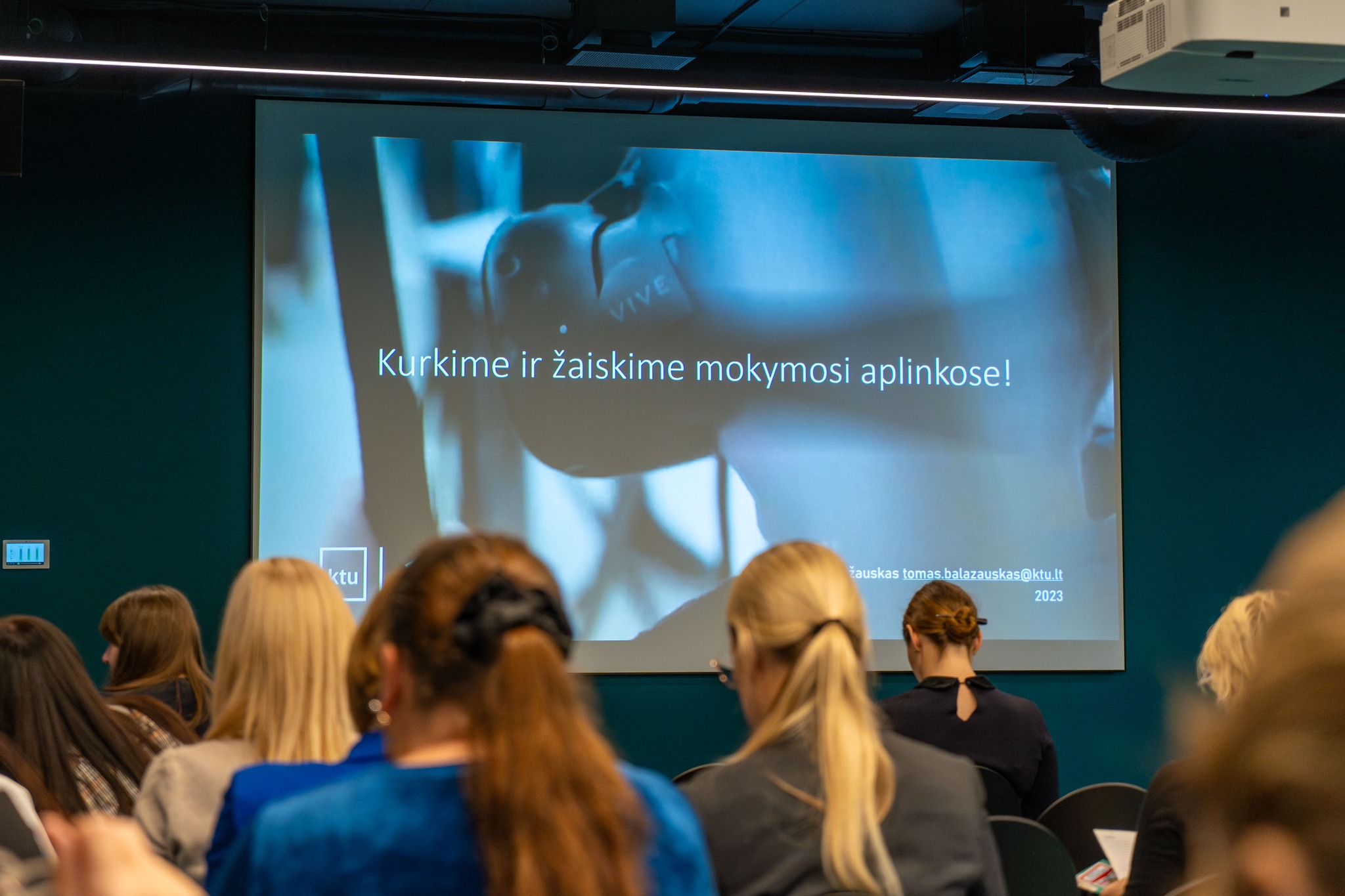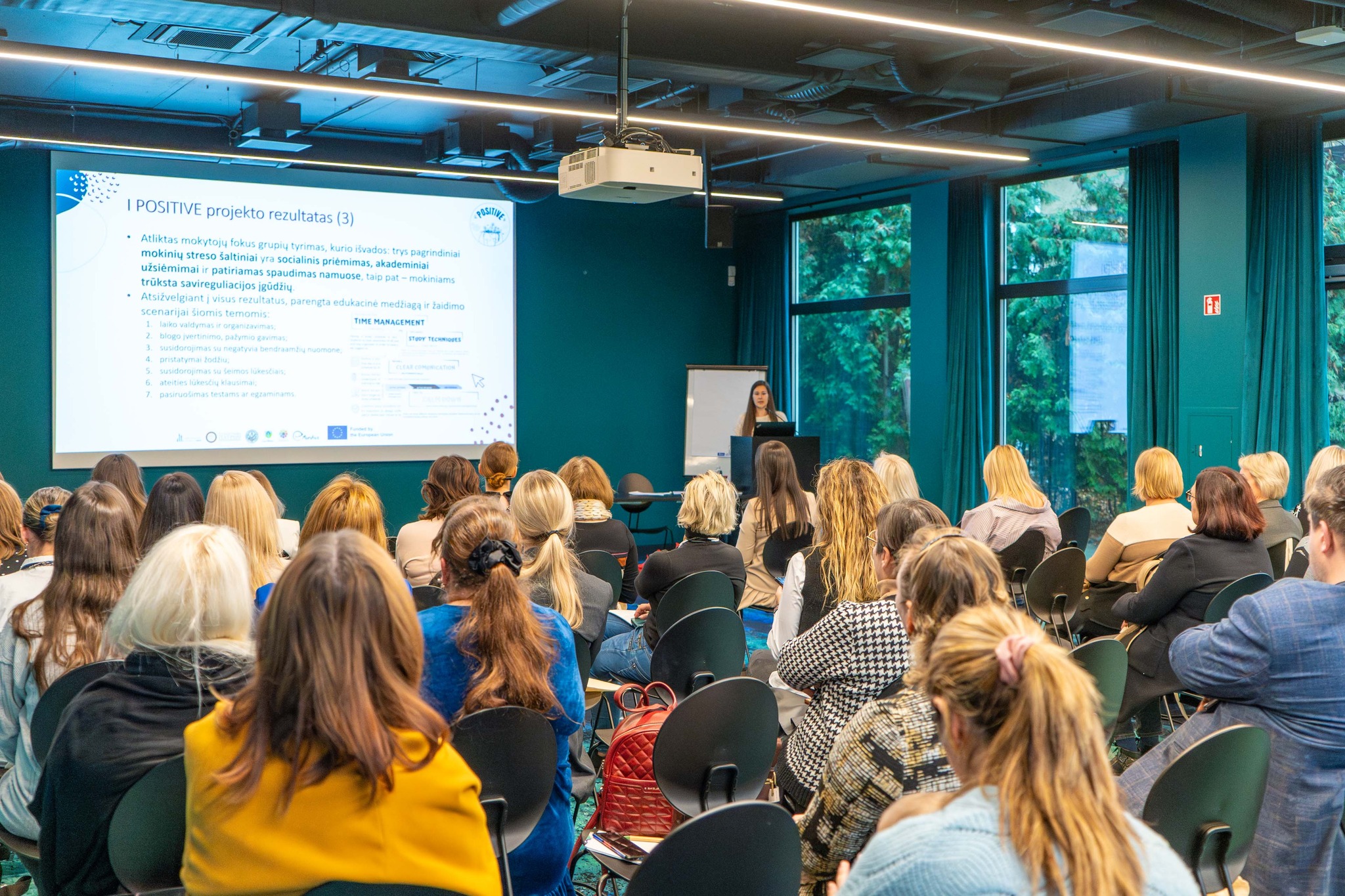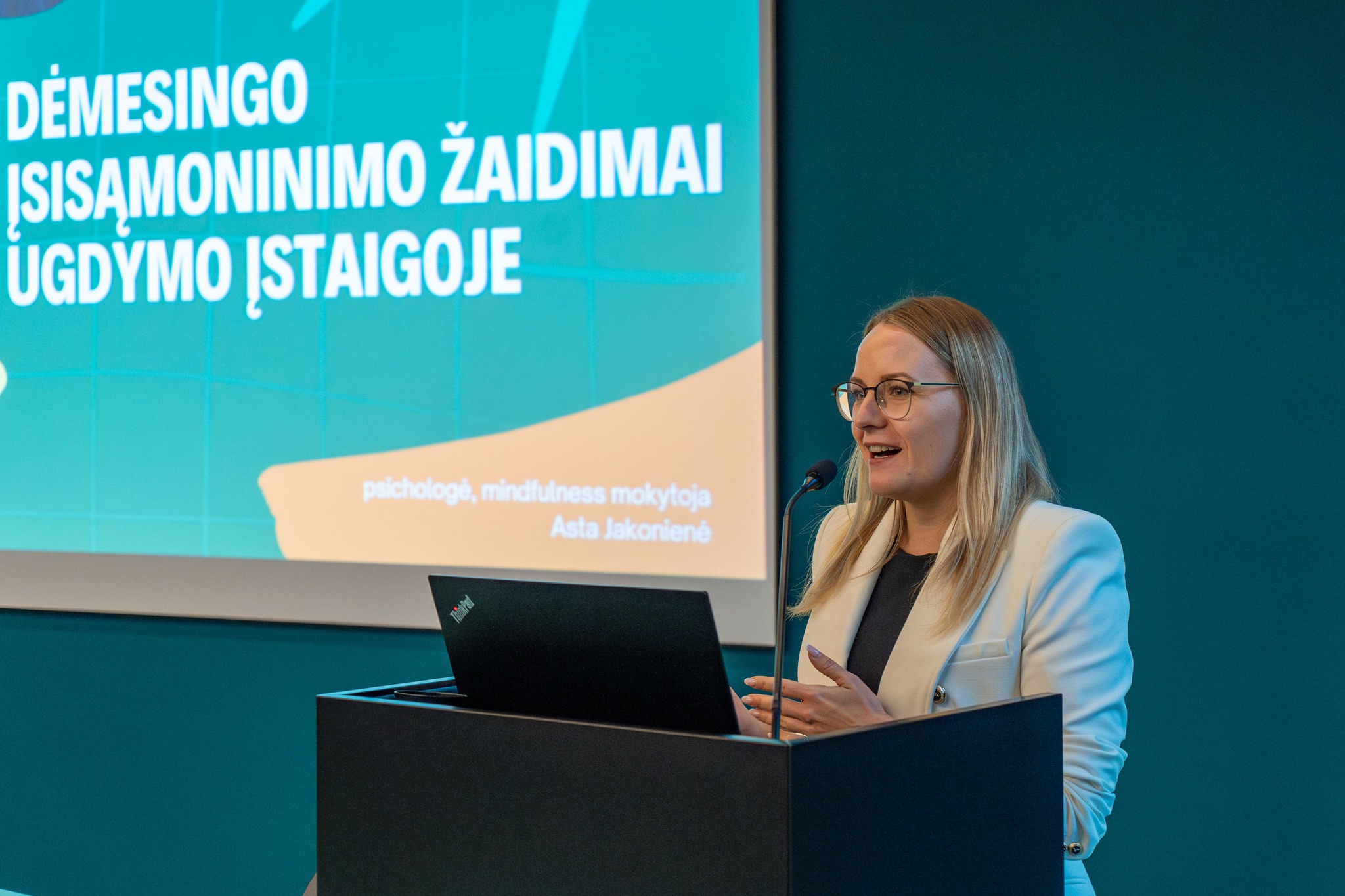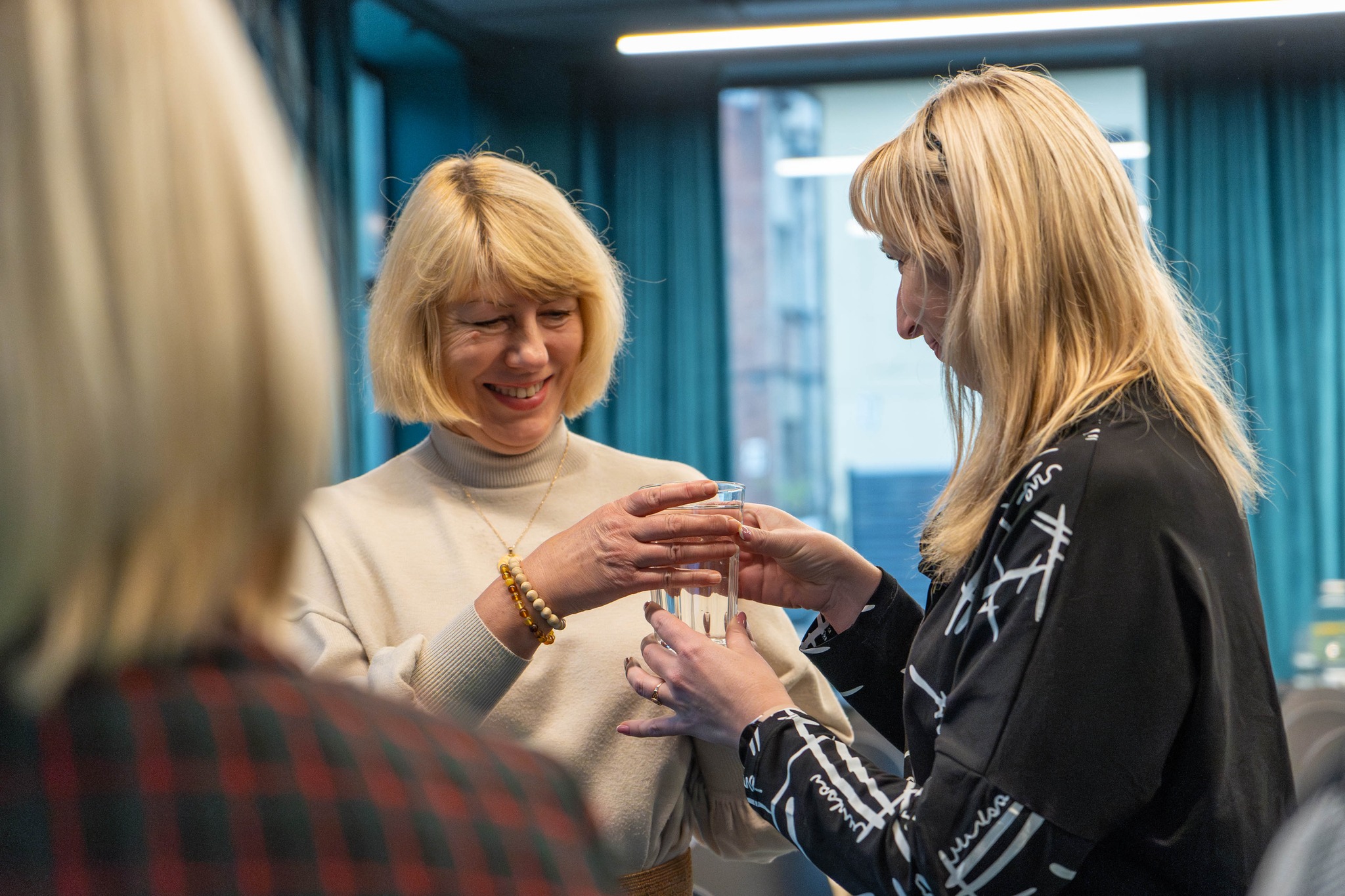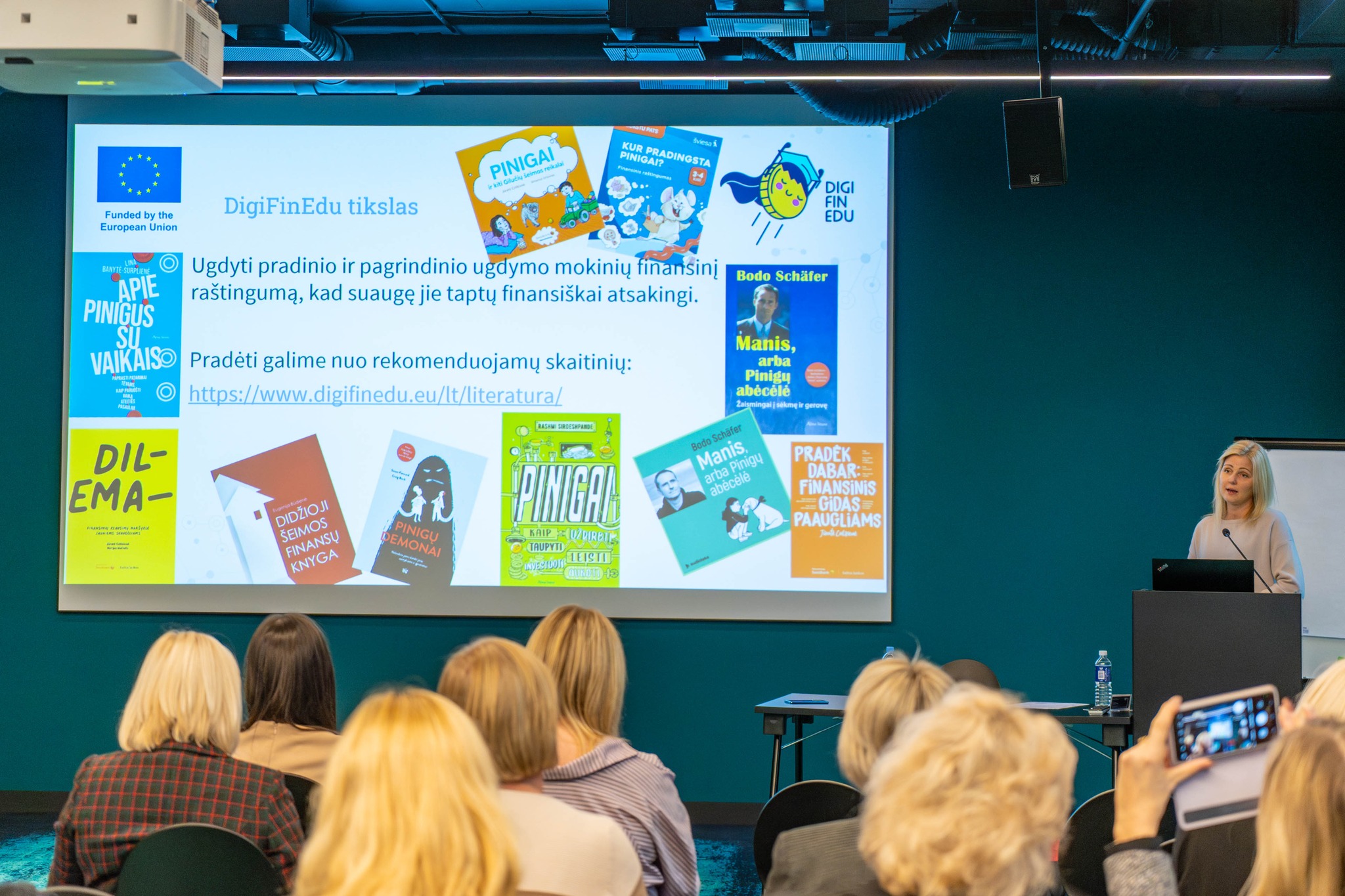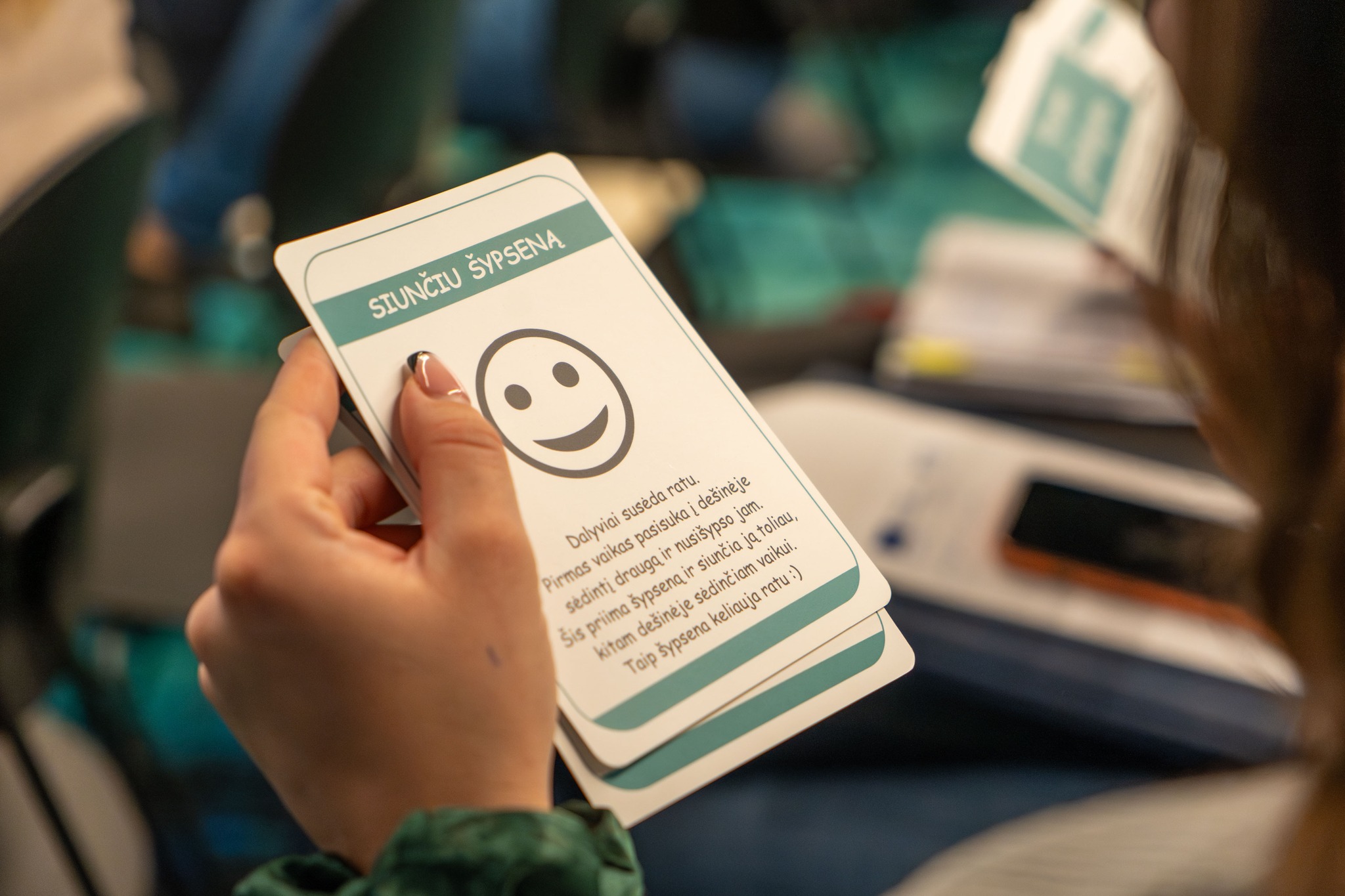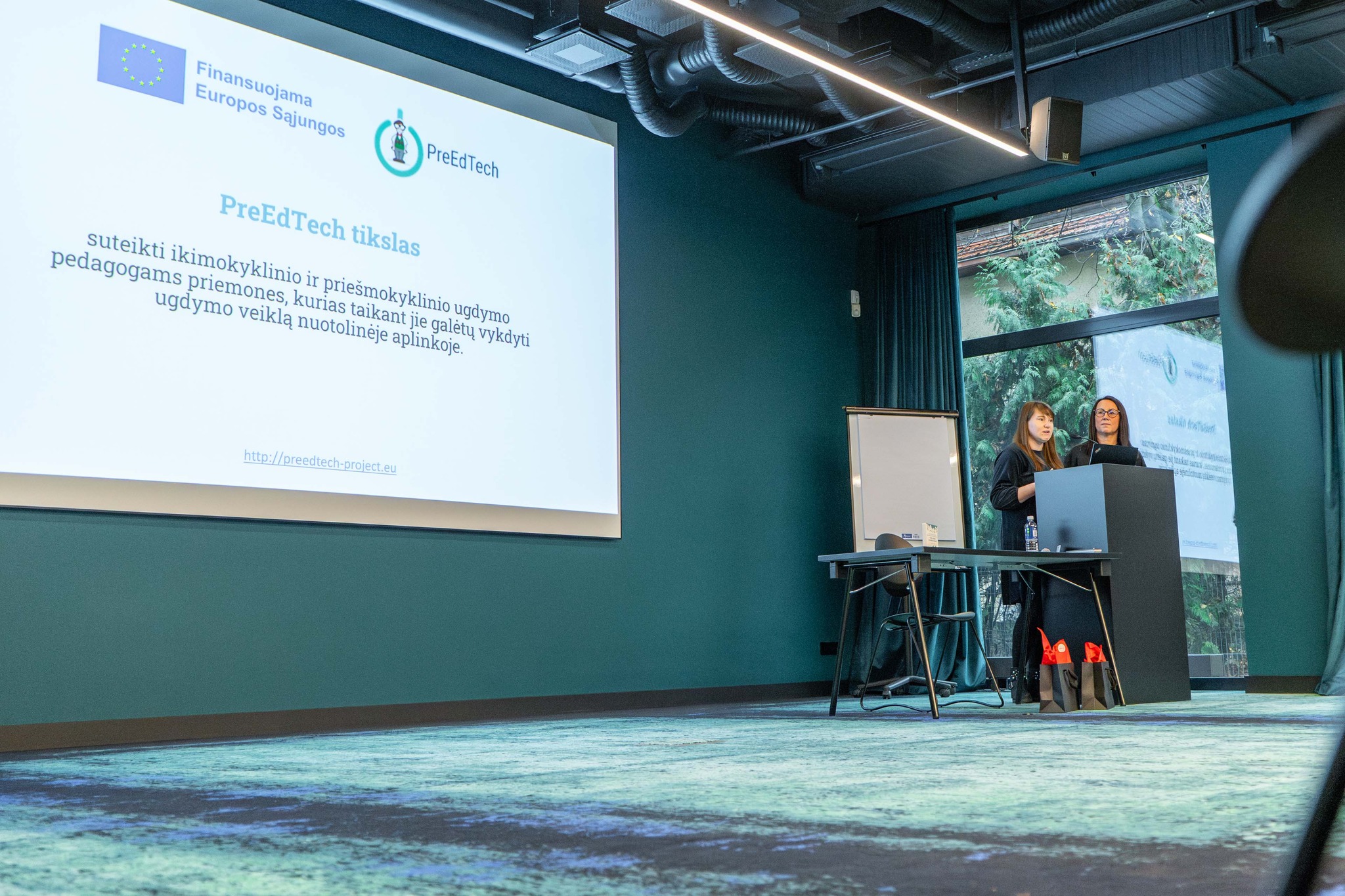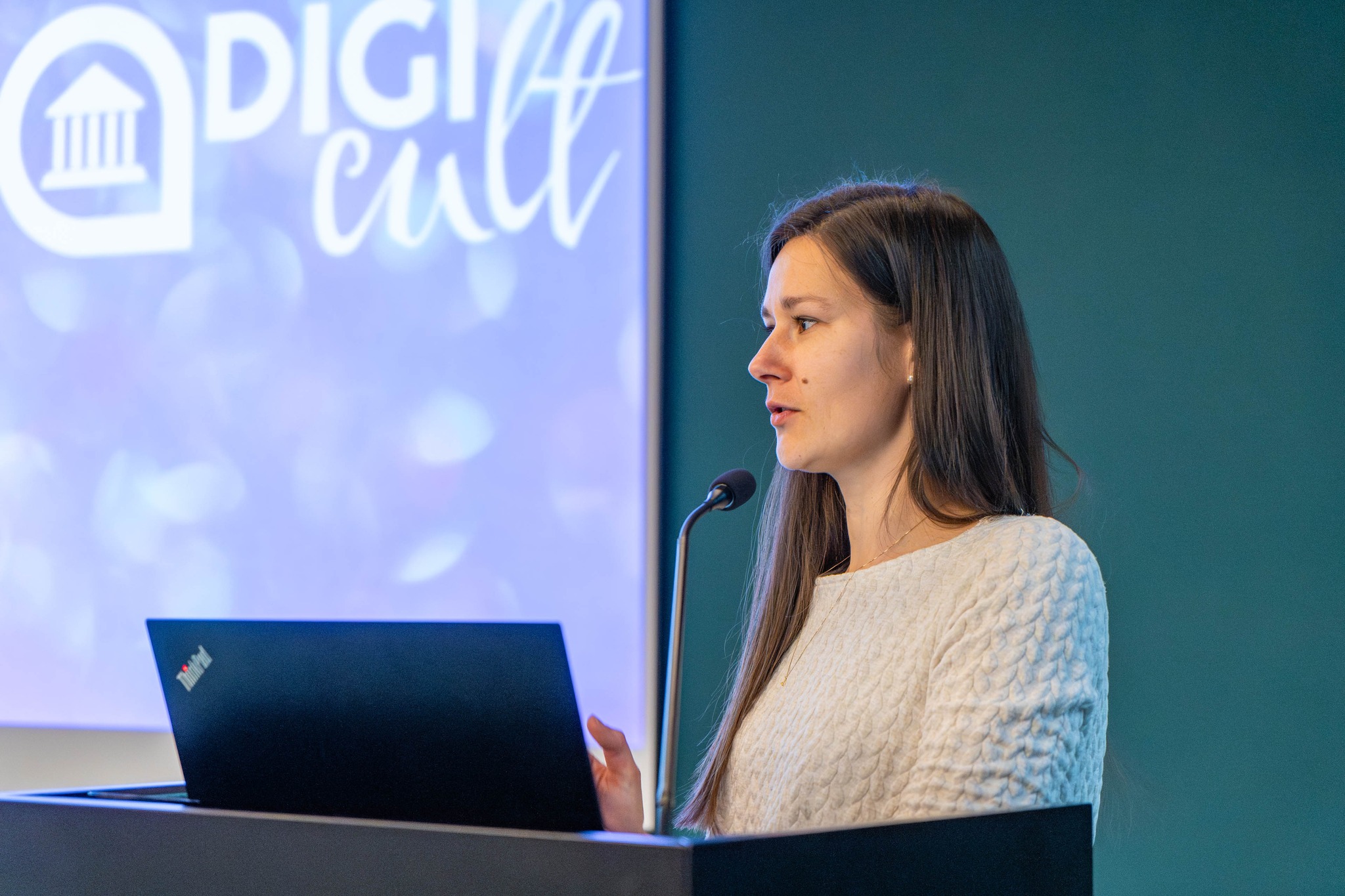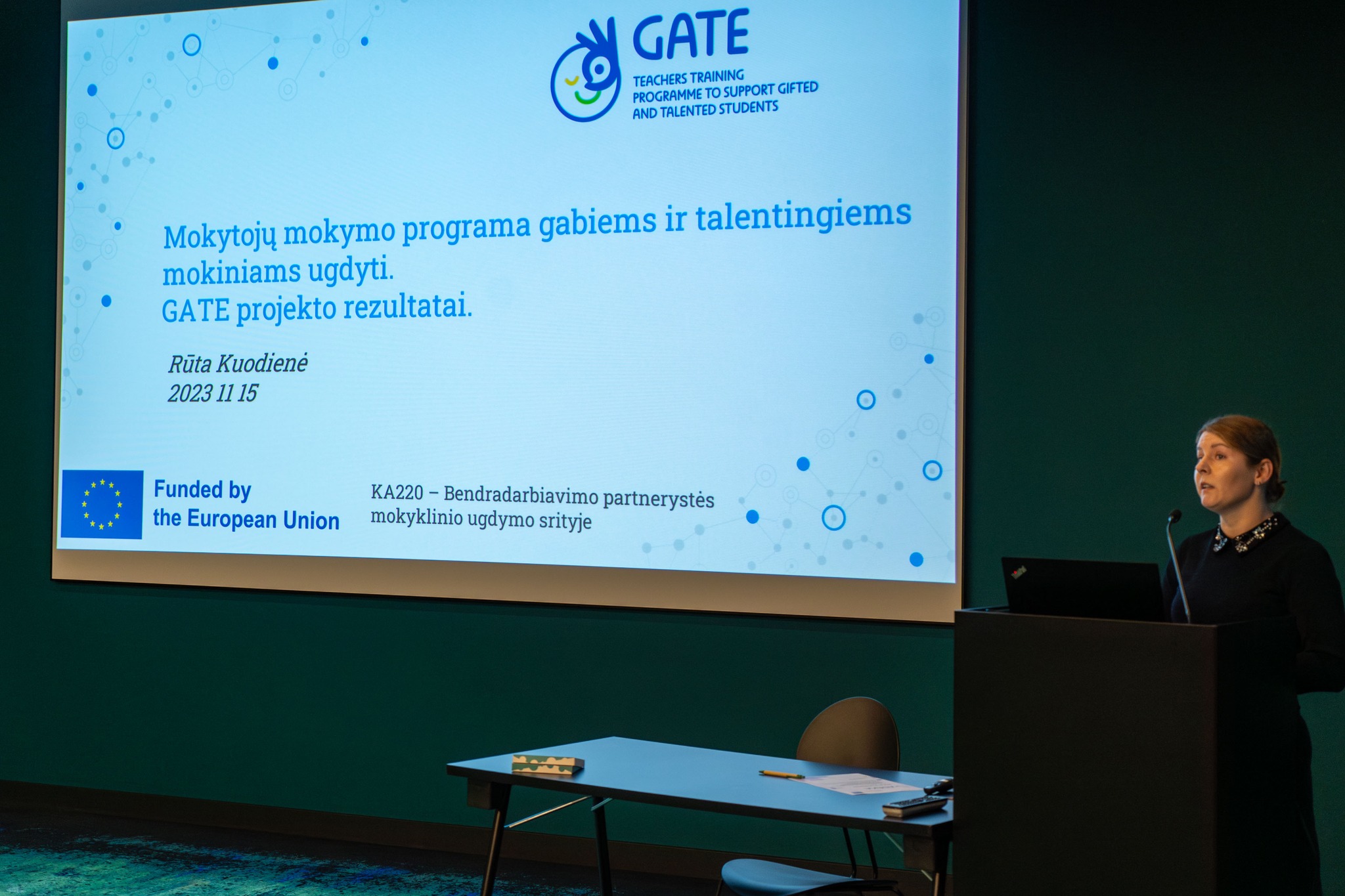
National Conference "Digital Gamification Practices in Education"
15 November 2023 a national conference on "Practices of Digital Gamification in Education" was held in Kaunas, Lithuania, with the participation of almost half a dozen motivated educators, school administrators and several parents from educational institutions in different Lithuanian cities.
During the conference, invited speakers and project participants presented best practices and ongoing Erasmus+ international educational projects DigiCult, DigiFinEdu, UX@School, PreTech, Gate, Positive, which are united by digital content and gamification as a method to teach and engage learners.
Gamification is currently one of the biggest trends in education, encouraging both children and adults to learn, increasing learners' motivation, and, when effectively applied, diversifying and facilitating teachers' work.
The basic principles of gamification and its nuances in the learning environment were presented by Tomas Blažauskas, professor at KTU, developer and implementer of educational gamification tools. He demonstrated the gaming and virtual reality projects carried out at the KTU Faculty of Informatics and showed the participants how to easily create an educational game on the required topic, without even needing IT skills.
Gamification is currently one of the biggest trends in education, encouraging both children and adults to learn, increasing learners' motivation, and, when effectively applied, diversifying and facilitating teachers' work.
The basic principles of gamification and its nuances in the learning environment were presented by Tomas Blažauskas, professor at KTU, developer and implementer of educational gamification tools. He demonstrated the gaming and virtual reality projects carried out at the KTU Faculty of Informatics and showed the participants how to easily create an educational game on the required topic, without even needing IT skills.
Vida Drąsutė, International Project Manager, presented the Erasmus+ international project DigiFinEdu, which focuses on financial literacy education for primary and secondary school students. The project culminates in the production of methodological and didactic materials for parents and teachers of children to successfully introduce financial literacy education through gamification and digital storytelling, both in general education and at home. The content and visual content of the above-mentioned project outputs are complemented by a visual novel or visual narrative, rich in interactive elements, which requires children to use their knowledge and make decisions in relation to financial literacy.
Neringa Kelpšaitė, International Project Coordinator at eMundus, presented the Positive project, the results of which are aimed at the prevention of stress among young people and children through virtual space. In this case, the project has created a virtual world - a game with seven scenarios that teach learners time management, emotion and conflict management, empathy, along with self-soothing techniques.
Asta Jakonienė, psychologist, psychotherapist and practitioner of schema therapy for children, presented simple Mindfulness games that encourage learners to be here and now, to relax, and that can be easily integrated into various learning programmes and lessons. Mindfulness techniques are important and useful not only for children, but also for teachers and parents to help them manage their emotional state and improve their performance. Several Mindfulness practices were also tested by the audience during the conference.
After a coffee break, during the discussion, the pre-school teachers of Kaunas school-kindergarten "Šviesa" Virginija Paužienė and Daiva Barkauskienė presented to the audience the "PreEdTech" project, aimed at improving the digital skills of pre-school and pre-primary school teachers. They not only presented the aim and results of the project, but also shared best practices and experience gained during their participation in the international project. They were highly motivated by their work and participation in the project and identified the following as some of the strongest motivators and experiences: international experience of cooperation and communication with foreign education and training teachers, knowledge of other countries' teaching systems, sharing teaching methods with each other internationally and professional development.
Increasing pressures of globalisation, economic competitiveness and the need for better student performance are driving a greater focus on the achievements of gifted and talented children who can become the innovators and leaders of the future, and attention to the needs of both teachers of gifted children and the children themselves is becoming essential. Rūta Kuodienė - Head of the Academy of Non-Formal Education "Alfa Children", author of textbooks and also an implementer of the GATE project - presented the project, or a training programme for primary education teachers and mentors to develop gifted and talented pupils, to the audience. The methodological materials and training programme developed in the course of the project are expected to help teachers to acquire more knowledge and practices in order to better identify gifted children and to adapt the content of their education to the development of gifted children. Ms Kuodienė also shared that the GATE project has created a network of cooperation between 4 countries, whose members share experiences, insights, consult and advise each other.
The participants thanked the conference speakers for their ideas and good practices and looked forward to the next meetings.
Conference photos you could find at: facebook.com/emundus

